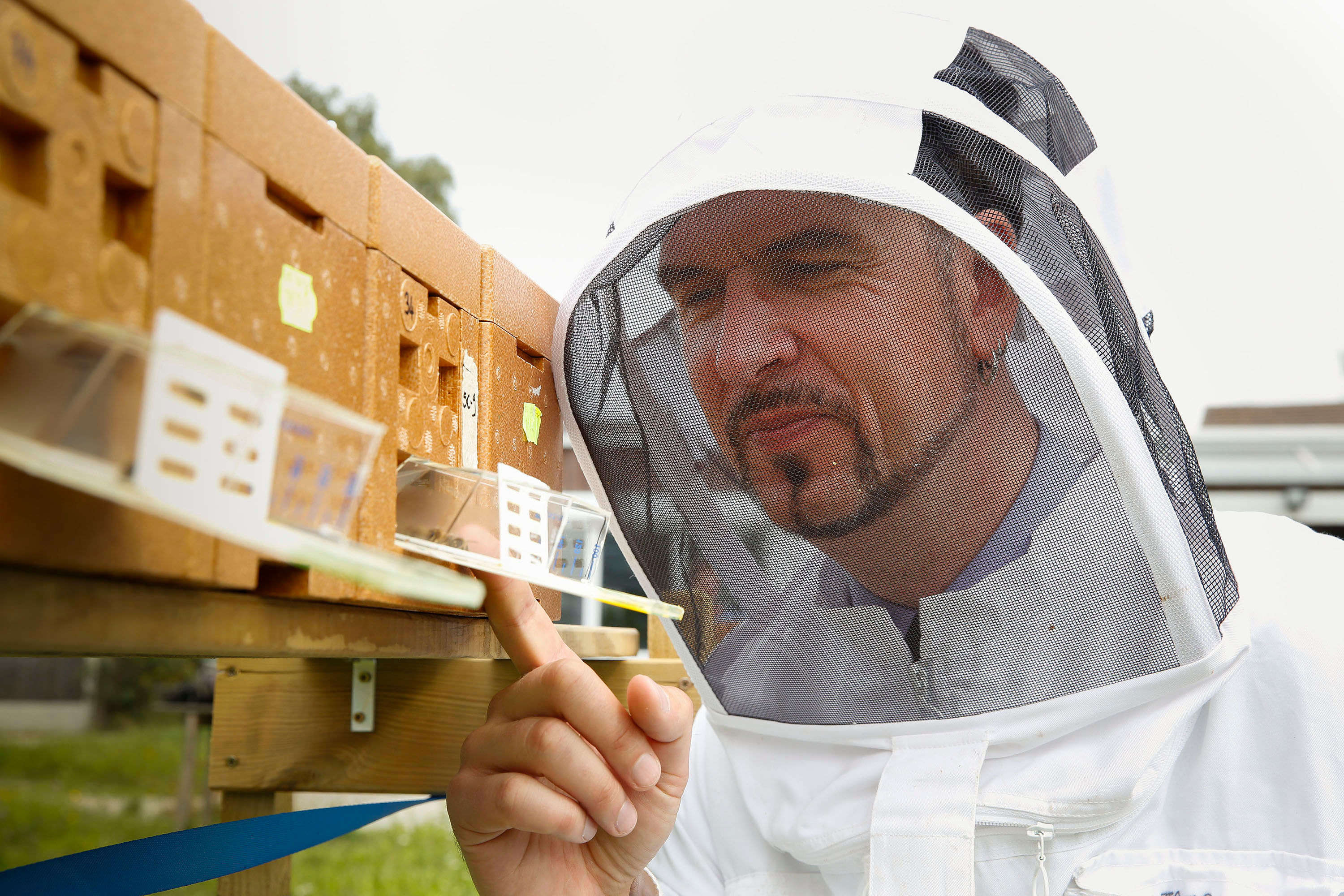Peter Neumann, Prof. Dr.

Institute of Bee Health, University of Bern, Switzerland.
Brief Bio: Peter Neumann has a background in chemistry, ecology and evolution. He is fascinated by social insects since his childhood and eventually moved from ants (his first love) to honey bees. Over the past 30+ years, he has worked with various social insect species on all continents except Antarctica focusing on honey bee pathology and ecotoxicology. Peter currently is Foundation-Vinetum Prof. of Bee Health; Director of the Institute of Bee Health, Vetsuisse Faculty, University of Bern; Extraordinary Professor, Department of Zoology and Entomology, University of Pretoria, South Africa and President of COLOSS (prevention of honeybee COlony LOSSes, www.coloss.org). For further details, please refer to his google scholar.
apiculture, evolution, host-pathogen, social insects, xenobiotics
A holistic view of global honey bee health
It is evident that the uncertain health of managed honey bees, Apis mellifera, requires global attention. For over a decade, beekeepers are noticing unsustainably high colony losses in many areas globally. Coordinated surveys (www.coloss.org) revealed that these losses are variable in both space and time for so far unknown reasons. Even though there is agreement that ectoparasitic mites and their associated viruses are key players, sustainable solutions are still not at hand. Moreover, the roles of other pathogens, agrochemicals, nutrition and beekeeping management (incl. breeding, import/export of bees and hive products) are debated, but a consensus has not been reached. This is probably due to complex interactions between (too) many known and unknown factors as well as variation in both space and time for any given mechanism. It is further apparent that not a single, but instead multiple possibly interacting mechanisms are governing the overall health of any honeybee colony ranging from individual bee, over caste to colony and population level. Accordingly, individual laboratories just cannot cover all aspects and snap-shots in space and time may provide false negative evidence. In light of the apparent complexity of the issues to be tackled, I herewith suggest going globally beyond agreed protocols (aka BEEBOOK) into joint concerted large-scale experiments ranging from cell cultures to the landscape level. Focus should probably be given to a more systematic comparison of areas and Apis populations / species with and without health issues and the apparent major gaps in knowledge of social immunity / detoxification.